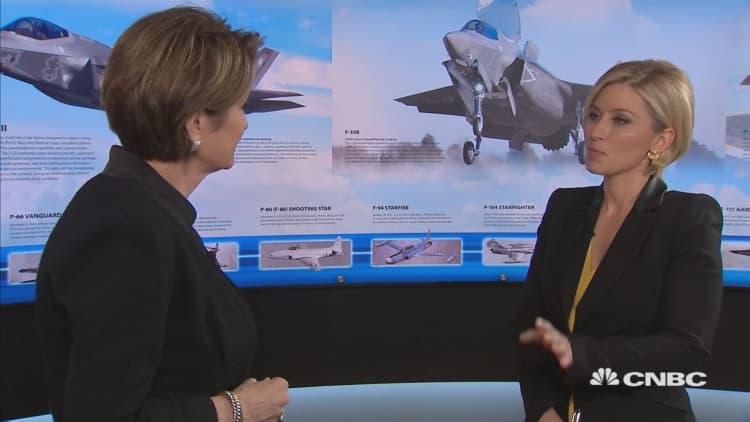
The race to Mars is on, and a new generation of space companies is providing a challenge to incumbents.
Lockheed Martin is one of several legacy companies working to be a part of future Mars missions, while SpaceX and its founder Elon Musk are pushing to begin colonizing Mars as early as 2022. Despite the newcomers, Lockheed Martin CEO Marillyn Hewson is undaunted in her outlook for the company's future in space.
"In terms of being the first to Mars, we have been on every Mars mission from the very first one," Hewson told CNBC. "I think we will continue to be on every mission to Mars."
After the successful maiden flight of SpaceX's Falcon Heavy rocket, Musk told reporters he wants "a new space race." Falcon Heavy — more powerful than any other rocket available and at a fraction of the price of any competitor — can launch payloads as far as "Pluto and beyond," Musk has said. But SpaceX is continuing work on its BFR program, which the company hopes will become the backbone of its Mars program.
Hewson pointed to two of Lockheed Martin's ongoing projects for NASA as backing for her declaration that the company will remain on any future Mars missions: the InSight lander and the Orion deep space capsule. The former is set to launch this May, while the latter awaits its first flight aboard the Space Launch System rocket in 2020.
InSight will assess "the environment of Mars," Hewson noted, while Orion is not anticipated to make the trip to Mars until after several SLS flights. The deep space capsule will fly uncrewed until at least 2022, when the second SLS mission is expected to take four astronauts around the moon.
"Someday, it'll be going to Mars," Hewson said of Orion.
In the same manner as Boeing CEO Dennis Muilenburg on Feb. 15, she offered a measure of praise to the new commercial ventures in space, which received a record amount of private investment last year.
"The new entrants into that over the last several years have helped to raise a lot of the excitement and innovation, and I think that's great for the space program," Hewson said.
"It's great for attracting talent into the space programs that we're working on," Hewson added.
— CNBC's Morgan Brennan contributed to this report.


